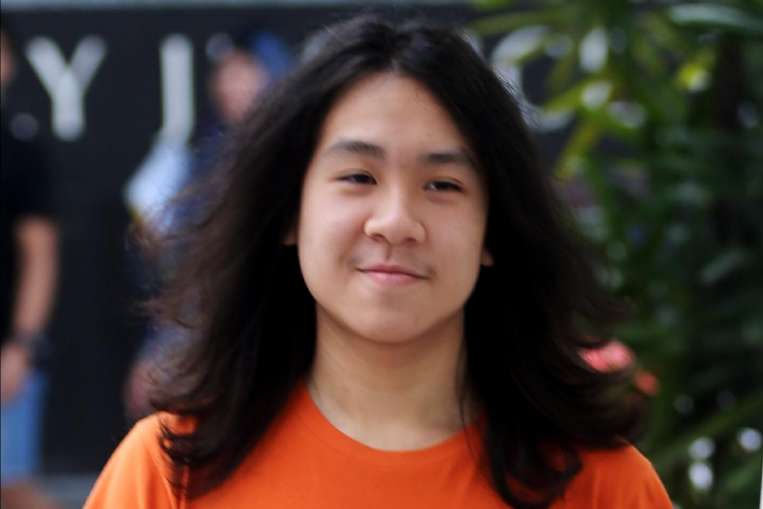Was 10 Years Too Much? 5 Other Countries That Jail People For Insulting Religions
Sentences range from four weeks in prison, the death penalty, to a replacement of the stipulated jail term.
On 8 March, a 22-year-old Sarawakian was sentenced to 10 years in jail for insulting Islam and Prophet Muhammad online
The Borneo Post reported that Alister Cogia, who posted offensive materials about the religion using his Facebook account 'Ayea', pleaded guilty at the Kuching Sessions Court on 8 March.
He faced five charges under Section 298A(1)(a) of the Penal Code for causing disharmony on grounds of religion, and another five under Section 233 of the Communications and Multimedia Act for improper use of network service.
The 22-year-old was slapped with a 10-year jail sentence and a RM50,000 fine for all 10 of his charges.
Judge Jason Juga delivered the sentence while Alister was unrepresented in court.
Alister's sentence has since attracted criticism from many, including Lim Kit Siang and Latheefa Koya
Iskandar Puteri MP Lim Kit Siang has called out Alister's 10-year jail sentence as "excessive", according to theSun.
"All Malaysians must uphold the Constitution and respect all religions... but there must be no excessive punishments like the 10-year jail sentence," he said.
Malaysiakini reported that prominent lawyer Latheefa Koya has urged a review of Alister's jail term, calling it "disproportionate".
"Shocking and unprecedented that the court passed a sentence of 10 years jail over an offence like this," she was quoted as saying by Malaysiakini.
"He had pleaded guilty, which should have been taken into account. 10 years consecutively is disproportionate and must be reviewed," she added.
Nonetheless, Alister now has help from a team of lawyers to review his 10-year jail sentence
Malay Mail reported that Batu Lintang assemblyman See Chee How and his legal team are seeking to review the 22-year-old's case proceedings to ensure it was properly carried out.
"It is our principle not to support or tolerate any insult or abuse towards any religion in our country. In this case, Alister's family sought our help, saying that he is suffering from behavioural difficulties and requires psychiatric advice and therapy," See said.
"There is doubt whether Alister understood the gravity of the charges and the significance of his guilty plea," the Batu Lintang assemblyman added.
While backlash towards Alister's sentence was not without reason, the penalties for his offence would vary in other countries. Here are a few of them:
1. Singapore
The Straits Times reported that Singaporean blogger Amos Yee was convicted for spewing hate speech against Christians, on top of publishing an obscene image in 2015.
The blogger reportedly said Jesus Christ was "power hungry and malicious", and "full of bull".
He was sent to four weeks in jail for those charges.
In 2016, the then 17-year-old Amos pleaded guilty for hate speech against Muslims and Christians, reported The Straits Times.
"The Islamics seems to have lots of sand in their vaginas... But don't mind them, they do after all follow a sky wizard and a pedophile prophet," Amos reportedly said.
He was sentenced to six weeks in prison and a SGD2,000 (approximately RM5,992) fine.
2. Pakistan
Last October, BBC reported that Asia Bibi was acquitted of her blasphemy charge by the Supreme Court of Pakistan. She was on death row for nearly eight years prior to the landmark ruling.
Although Asia had always maintained that she was innocent, demonstrations against her acquittal broke out in Karachi, Lahore, Peshawar, and Multan.
Asia's charge came from an argument she had with a group of women in 2009. The women had told Asia that they could no longer touch a cup she used as her Christian faith made it 'unclean'.
After the women allegedly told her to convert to Islam, Asia responded with three offensive comments about the Prophet Muhammad.
Nonetheless, Daily Mail reported that Asia and her husband have not been allowed to leave the country as of yesterday, 10 March, despite her acquittal.
3. India
BBC reported that Abhijit Iyer-Mitra was sent to jail in October 2018 by an Indian court for allegedly making a derogatory remark about a Hindu temple.
His 'vulgar' comment about the temple, which features erotic sculptures, sparked outrage among residents of Indian state Odisha.
Abhijit had previously clarified that he was joking, and the sculptures in that temple were "exquisite".
BBC noted that despite allegations by the prosecution, there had been no agitation against Abhijit for his comment, as his offending tweet received only seven likes and one retweet.
Nonetheless, Times Of India reported that Abhijit was granted pardon by the Odisha government after spending more than a month in jail.
He had issued an 'unconditional' apology for unintentionally hurting the sentiments of Odisha's residents.
4. Myanmar
ABC reported that a bar manager from New Zealand was sentenced to two-and-a-half years in jail by a Yangon court in 2015 for insulting Buddhism.
Philip Blackwood was convicted for using an image of Buddha to promote a cheap drinks night at his bar. The offending photo reportedly showed Buddha wearing DJ headphones.
Although he admitted to posting the photo without intending to offend anyone, Judge Ye Lwin claimed that the then 32-year-old Blackwood had "intentionally plotted to insult religious belief".
According to Stuff, he was eventually released from prison in 2016 as part of the presidential pardon.
5. Lebanon
In February 2018, Asia News reported that two Muslim teenagers went into a church before throwing a statue of Virgin Mary to the ground and carried out lewd acts against the statue.
Under Lebanese law, those convicted of verbal insults or physical defiling of religious rites and objects face up to three years in jail.
However, the teens did not end up in prison.
According to The Independent, the boys were instead sentenced to study the references to the Virgin Mary found in the Quran.
Justice Joceline Matta said she wanted the teenagers to learn about Islam's respect for the mother of Christ, before adding that the law is "a school and not just a prison". They were ordered to learn verses from the Al-Omran surah in order to be released.
The ruling gained praise from Lebanese Prime Minister Saad Hariri, who called the sentence an "epitome of justice" which promotes coexistence between Muslims and Christians in the country.









